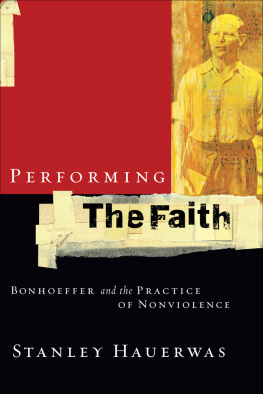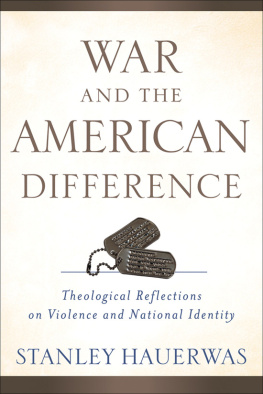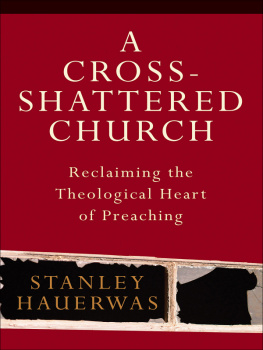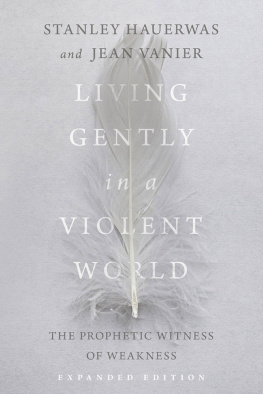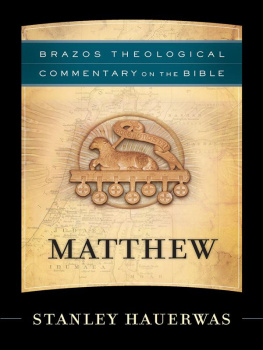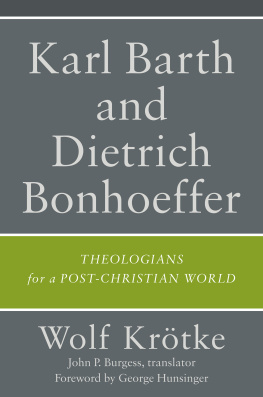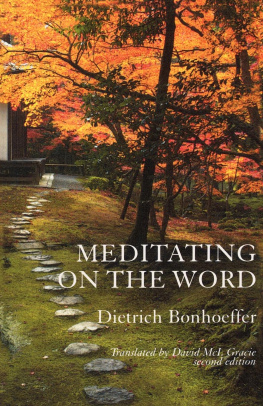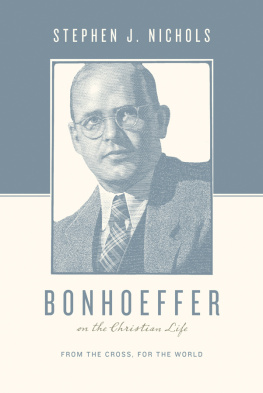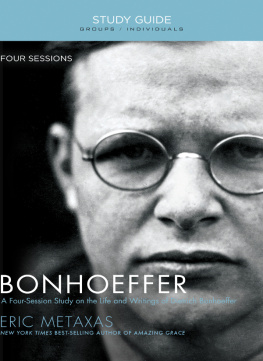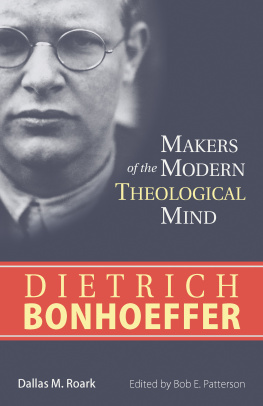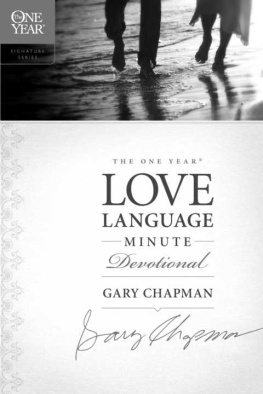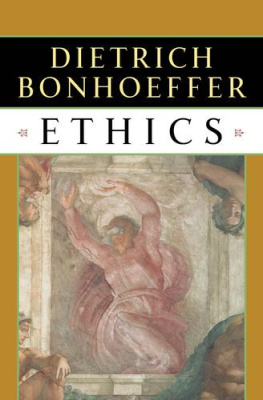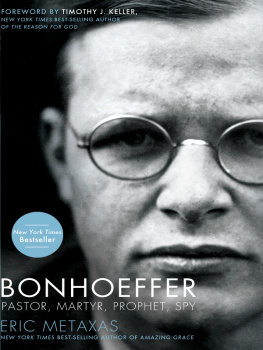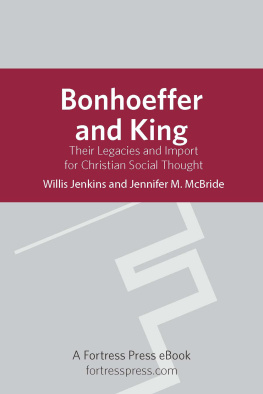Stanley Hauerwas - Performing the Faith: Bonhoeffer and the Practice of Nonviolence
Here you can read online Stanley Hauerwas - Performing the Faith: Bonhoeffer and the Practice of Nonviolence full text of the book (entire story) in english for free. Download pdf and epub, get meaning, cover and reviews about this ebook. year: 2004, publisher: Baker Publishing Group, genre: Religion. Description of the work, (preface) as well as reviews are available. Best literature library LitArk.com created for fans of good reading and offers a wide selection of genres:
Romance novel
Science fiction
Adventure
Detective
Science
History
Home and family
Prose
Art
Politics
Computer
Non-fiction
Religion
Business
Children
Humor
Choose a favorite category and find really read worthwhile books. Enjoy immersion in the world of imagination, feel the emotions of the characters or learn something new for yourself, make an fascinating discovery.
- Book:Performing the Faith: Bonhoeffer and the Practice of Nonviolence
- Author:
- Publisher:Baker Publishing Group
- Genre:
- Year:2004
- Rating:5 / 5
- Favourites:Add to favourites
- Your mark:
- 100
- 1
- 2
- 3
- 4
- 5
Performing the Faith: Bonhoeffer and the Practice of Nonviolence: summary, description and annotation
We offer to read an annotation, description, summary or preface (depends on what the author of the book "Performing the Faith: Bonhoeffer and the Practice of Nonviolence" wrote himself). If you haven't found the necessary information about the book — write in the comments, we will try to find it.
Performing the Faith: Bonhoeffer and the Practice of Nonviolence — read online for free the complete book (whole text) full work
Below is the text of the book, divided by pages. System saving the place of the last page read, allows you to conveniently read the book "Performing the Faith: Bonhoeffer and the Practice of Nonviolence" online for free, without having to search again every time where you left off. Put a bookmark, and you can go to the page where you finished reading at any time.
Font size:
Interval:
Bookmark:

2004 by Stanley Hauerwas
Published by Brazos Press
a division of Baker Publishing Group
P.O. Box 6287, Grand Rapids, MI 49516-6287
www.brazospress.com
Ebook edition created 2012
All rights reserved. No part of this publication may be reproduced, stored in a retrieval system, or transmitted in any form or by any meansfor example, electronic, photocopy, recordingwithout the prior written permission of the publisher. The only exception is brief quotations in printed reviews.
ISBN 978-1-4412-4193-1
Library of Congress Cataloging-in-Publication Data is on file at the Library of Congress, Washington, DC.
Scripture is taken from the New Revised Standard Version of the Bible, copyright 1989 by the Division of Christian Education of the National Council of the Churches of Christ in the USA. Used by permission.
The internet addresses, email addresses, and phone numbers in this book are accurate at the time of publication. They are provided as a resource. Baker Publishing Group does not endorse them or vouch for their content or permanence.
To
Louise and Bruce Kaye
Jo and Sam Wells
Darlene and Timothy Kimbrough
Patricia and Keith Meador
Jane and Rowan Williams
C ONTENTS
P REFACE
We live in dark times. September 11, 2001, decisively changed American politics for God knows how long. The change, moreover, cannot help but make Americans even more determined by what John Paul II calls the culture of death than we were before that fateful day. For American politics to be changed means, given American power, that the politics of the world is changed. I would wish it otherwise, but that is the way things are. To publish a book, even a book that tries to defend nonviolence, in the hope to make things better may be the ultimate foolishness. But writing is what I do. I wish I had some useful suggestions that might make the world after September 11, 2001, better, but I do not. Christians, however, have been given gifts that make it possible to go on when it is not clear how to go ongifts as simple as being willing to tell one another the truth.
John Howard Yoder and James McClendon were not only my teachers but friends. Few days go by that I do not think of them and give God thanks for their lives and their work. September 11, 2001, has made their absence particularly poignant. I keep thinking they would have known what needs to be said. Many people now expect me to say what John and Jim would have said. I do not feel equal to that task. Thank God there are now many younger folk coming forward who have been shaped by Johns and Jims work who know better what needs to be said and done than I am able to say or to do. I hope that what I have tried to do in Performing the Faith, however, will be of some use for those so committed.
As usual I am beholden to many people who make my life possible as well as put up with my refusal not to work. Sarah Freedman continues to do the hard work that brings what I do to print. The Graduate Program in Religion at Duke attracts extraordinary students who make me think harder than I would otherwise wish. What a privilege it is to teach and to be taught by them. I am particularly grateful to Alex Sider and Charlie Collier for reading these essays and helping me prepare them for inclusion in this book. I am also fortunate to be a member of the faculty of the Divinity School at Duke University when many new appointments have been and continue to be made to an already strong faculty. It is a privilege to serve on a faculty with such colleagues. We are in debt to Greg Jones, the Dean of the Divinity School, for the work he has done to make Divinity School a reality.
Rodney Clapp first suggested the possibility of this book. That is not strictly true. Rodney thought the Bonhoeffer essays might make a good small book. I thought about that, but the more I thought about his suggestion the more I saw connections between the Bonhoeffer essays and other essays I had written and and some I was still to write. So Rodney got stuck with a bigger book than the one he first suggested. Thank God Rodney has a sense of humor. Bobbi Jo Heyboer, Rebecca Cooper, and Steve Ayers are tireless workers at Brazos Press. They care deeply about the books they publish because they care deeply about the church. I could not wish for better people to work with in the preparation and distribution of my books.
Paula makes my life possible. I am a gregarious person, which means I forget that I need to know how to be quietly at rest. With great patience Paula has slowly taught me how to be at rest, particularly the rest prayerful worship names. Going to church with Paula is a great joy. Her love of the church, the care with which she celebrates the Eucharist, is an inspiration for me.
Paula and I now worship at the Church of the Holy Family (Episcopal). No one will be well served by trying to explain how we found our way to Holy Family. However, our being at Holy Family helps explain why I have dedicated this book to our Anglican friends Darlene and Timothy Kimbrough, Patricia and Keith Meador, Louise and Bruce Kaye, Jo and Sam Wells, and Jane and Rowan Williams. Darlene, Timothy, Keith, and Patricia are friends from Holy Family. Bruce and Louise are Australians. Jo, Sam, Jane, and Rowan are English (though Rowan is Welsh). Paula and I have many Anglican friends, but these friends have reached out to us from near and far helping us remember that the Christian family makes possible friendship across time and space.
After all the jokes I have told about Anglicans, I suspect it is Gods little joke on me that I now worship with Anglicans. Paula and I are well aware that Anglicanism, like all the mainstream Protestant denominations, lacks coherence. But that same incoherent church continues to produce people like Louise, Bruce, Sam, Jo, Timothy, Darlene, Patricia, Keith, Jane, and Rowan who help Paula and me have some intimation of what it might be like to live our lives as Christians. We live in dark times, but God gives us friends who make it possible to see through the darkness. Thank God for friends like these.
I NTRODUCTION
There can only be a community of peace when it does not rest on lies and injustice. Where a community of peace endangers or chokes truth and justice, the community of peace must be broken and battle joined. If the battle is then on both sides really waged for truth and for justice, the community of peace, though outwardly destroyed, is made all the deeper and stronger in the battle over this same cause. But should it become clear that one of the combatants is only fighting for his own selfish ends, should even this form of the community of peace be broken, there is revealed that reality which is the ultimate and only tolerable ground of any community of peace, the forgiveness of sins. There is a community of peace for Christians only because one will forgive the other for his sins. The forgiveness of sins still remains the sole ground of all peace, even where the order of external peace remains preserved in truth and justice. It is therefore also the ultimate ground on which all ecumenical work rests, precisely where the cleavage appears hopeless. For Anglo-Saxon thought, truth and justice remain constantly subordinate to the ideal of peace. Indeed, the existence of peace is virtually itself the proof that peace and justice have been preserved; because the order of peace is a reality of the Gospel, of the kingdom of God, truth and justice can never be contrary to it. But it has become clear that precisely this conception is illusory. The reality of the Gospel is not the external order of peace, not even the peace of the battle for the same cause, but only the peace of God, which brings about forgiveness of sins, the reality in which truth and justice are both preserved.
Next pageFont size:
Interval:
Bookmark:
Similar books «Performing the Faith: Bonhoeffer and the Practice of Nonviolence»
Look at similar books to Performing the Faith: Bonhoeffer and the Practice of Nonviolence. We have selected literature similar in name and meaning in the hope of providing readers with more options to find new, interesting, not yet read works.
Discussion, reviews of the book Performing the Faith: Bonhoeffer and the Practice of Nonviolence and just readers' own opinions. Leave your comments, write what you think about the work, its meaning or the main characters. Specify what exactly you liked and what you didn't like, and why you think so.

